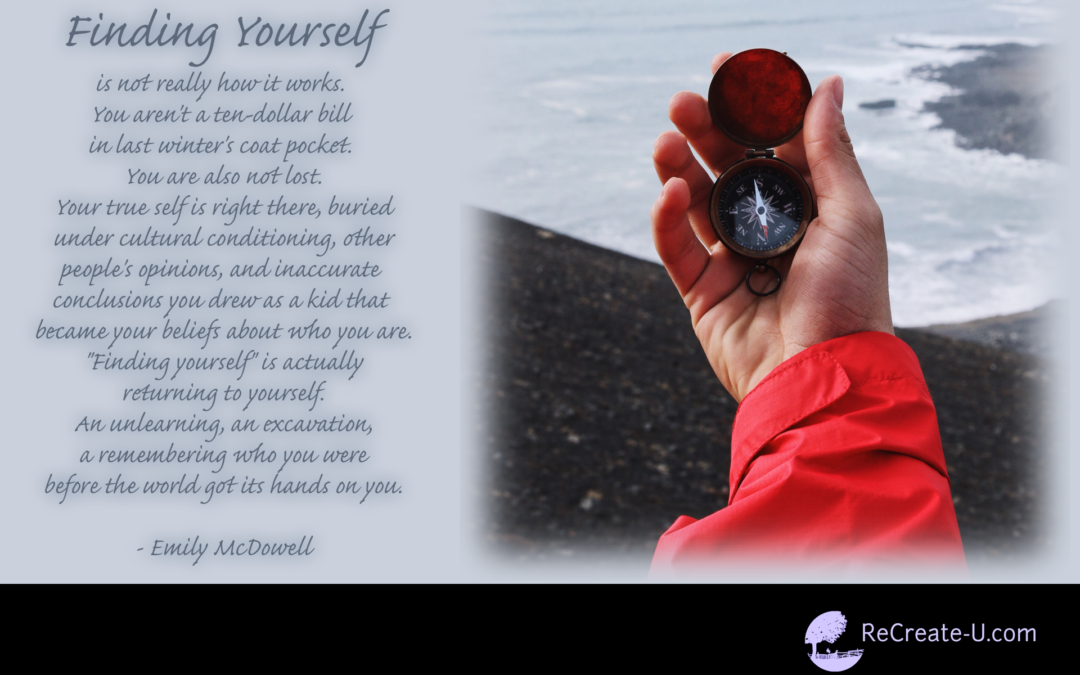Acceptance is the acknowledgment of yourself as U really are at the moment, with no illusions or self-deception.
Likewise, acceptance expands outward by acknowledging situations, other people, your whole world and overarching reality as it is, not as U would rather it be.
To invite acceptance is to face facts. No one can truly reinvent themselves without practicing the art of acceptance, because acceptance is a form of deep honesty and reinvention requires honesty.
The art of acceptance is also the art of living without preconditions or unrealistic expectations. Having expectations isn’t a bad thing, except when U try to treat your own expectations as facts. It’s easy to get caught up in a false world that’s governed by your expectations.
Your irrational expectations prevent acceptance in many cases. U have expectations yourself, other people, the world, the way life should go.
Consider how disappointing the following expectations are:
• Life should be fair.
• People should always treat me well.
• I need to be great at everything I do.
• People must like me.
• I must please other people all the time.
These are all irrational expectations that create misery and frustration. U will remain afflicted with disappointment because U are living in a state of conditionality, not acceptance. Acceptance may look a bit grim, but it’s far from it. Indeed, irrational expectations prevent acceptance in many cases.
Consider:
• Life isn’t fair.
• People don’t always treat me well.
• I’m not great at everything.
• Some people don’t like me.
• I don’t please others all the time.
Accepting these as the rock-solid facts they are is liberating. Acceptance frees U from disappointment. It blows the doors to your own personal development wide open. Personal reinvention leads to fantastic developments only when U are willing to shed your illusions, preconceptions, and expectations.
What acceptance isn’t
If acceptance is an acknowledgment of facts, what is it not? Acceptance is not:
• Approval
• Resignation
• Settling for less
• Passivity
• Naiveté
• Helplessness
• Hopelessness
• An excuse for negativity
• Avoidance
Acceptance doesn’t mean U pretend to like a situation or that something doesn’t hurt or disturb. Instead, when U accept a situation as distressing, U own your feelings. The tendency is to shy away from things that are unpleasant, and many times in life you will face unpleasantries. Sometimes it’s not so much the hard truth that disturbs U as it is your thoughts and feelings about the truth.
It is a natural tendency to want to make things congruent and harmonious with your beliefs. Often, when faced with a fact that doesn’t fit in with worldviews, U will distort it to fit your own views, or U will ignore it altogether. That’s a false belief, but it’s the nature of the human psyche to keep U insulated from pain.
Often, that insulation gets applied before U make a rational analysis of a threat—or a change. Often U will feel threatened, and U will attempt to remove yourself from the danger, even if it means U haven’t accepted the reality of a situation.
Coping with reality always works better for reinvention than avoiding reality. Accepting reality never lets U down and always helps build U up. Given that reinvention is all about change U have to have a solid basis for correctly and realistically gauging what to change and how to go about it.
Acceptance is essential for inner peace, and it’s also essential for making life changes. As U begin to make changes, you’ll be able to discover how to carry out your personal transformation.
Acceptance of yourself isn’t the end of things. Acceptance is the beginning of reinvention, a re-awakening of your self.
Don’t reinvent the wheel, just realign it. ― Anthony J. D’Angelo
[spacer height=”30px”]
“I don’t know if I continue, even today, always liking myself. But what I learned to do many years ago was to forgive myself. It is very important for every human being to forgive herself or himself because if you live, you will make mistakes – it is inevitable. But once you do and you see the mistake, then you forgive yourself and say, ‘Well, if I’d known better I’d have done better,’ that’s all. So you say to people who you think you may have injured, ‘I’m sorry,’ and then you say to yourself, ‘I’m sorry.’ If we all hold on to the mistake, we can’t see our own glory in the mirror because we have the mistake between our faces and the mirror; we can’t see what we’re capable of being. You can ask forgiveness of others, but in the end the real forgiveness is in one’s own self. The real difficulty is to overcome how you think about yourself. If we don’t have that we never grow, we never learn, and sure as hell we should never teach.”
― Maya Angelou[spacer height=”30px”]
“Often, it’s not about becoming a new person, but becoming the person you were meant to be, and already are, but don’t know how to be.” ― Heath L. Buckmaster


